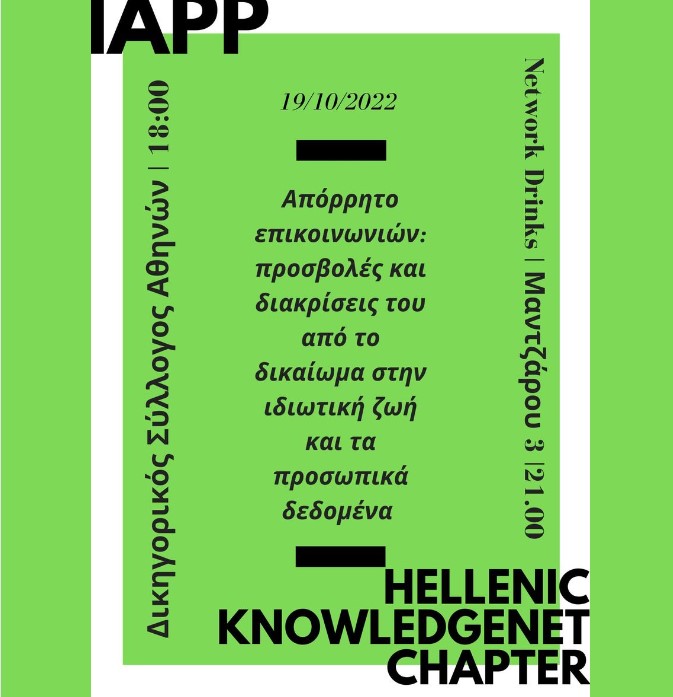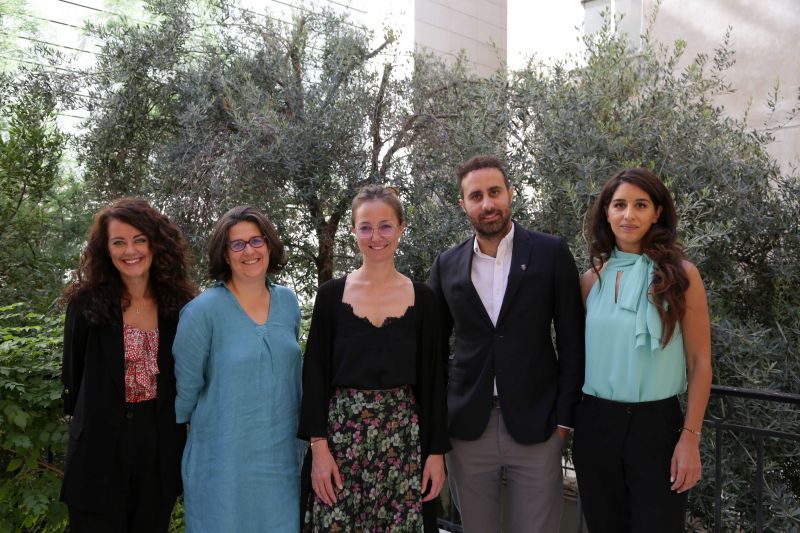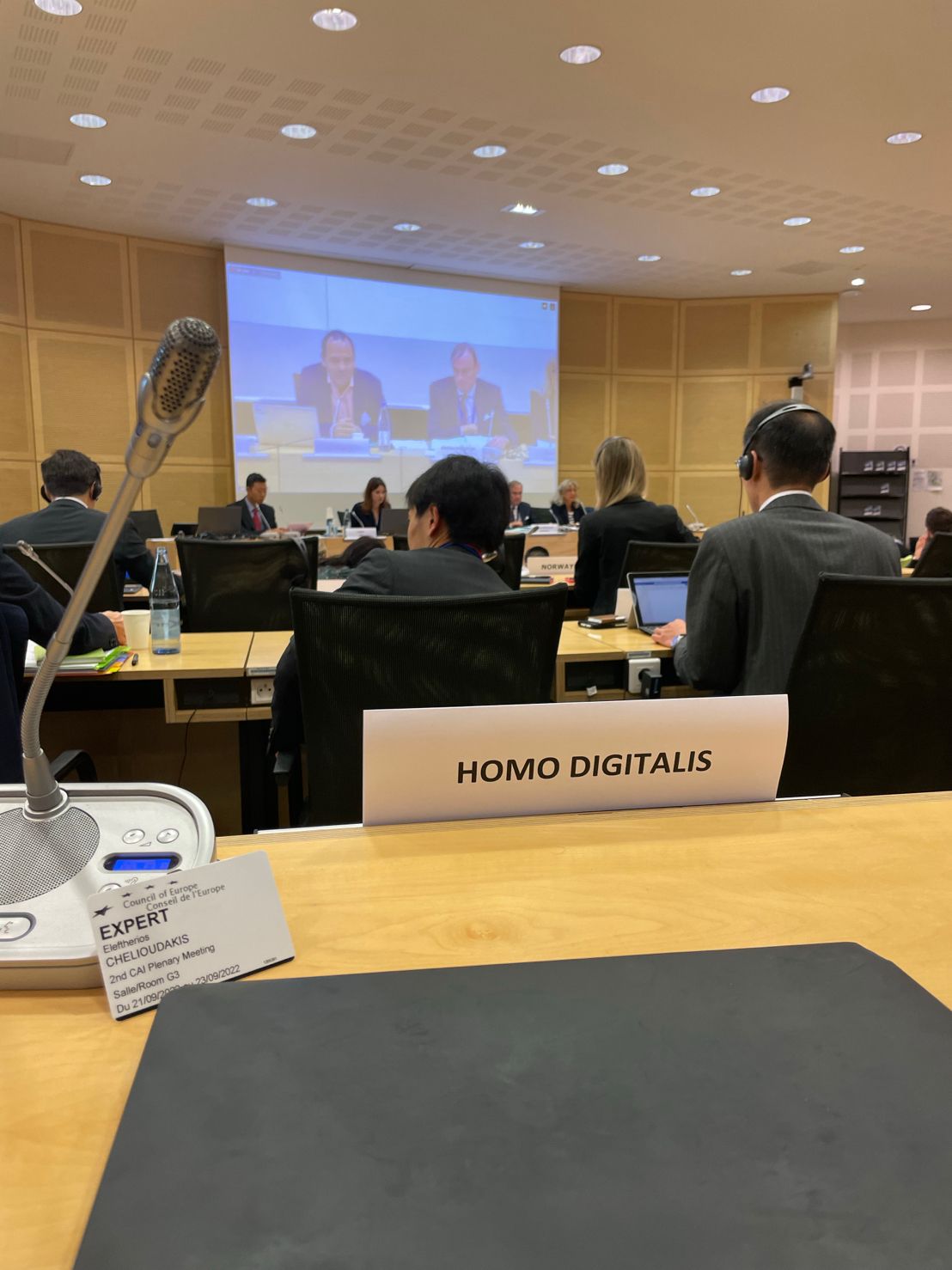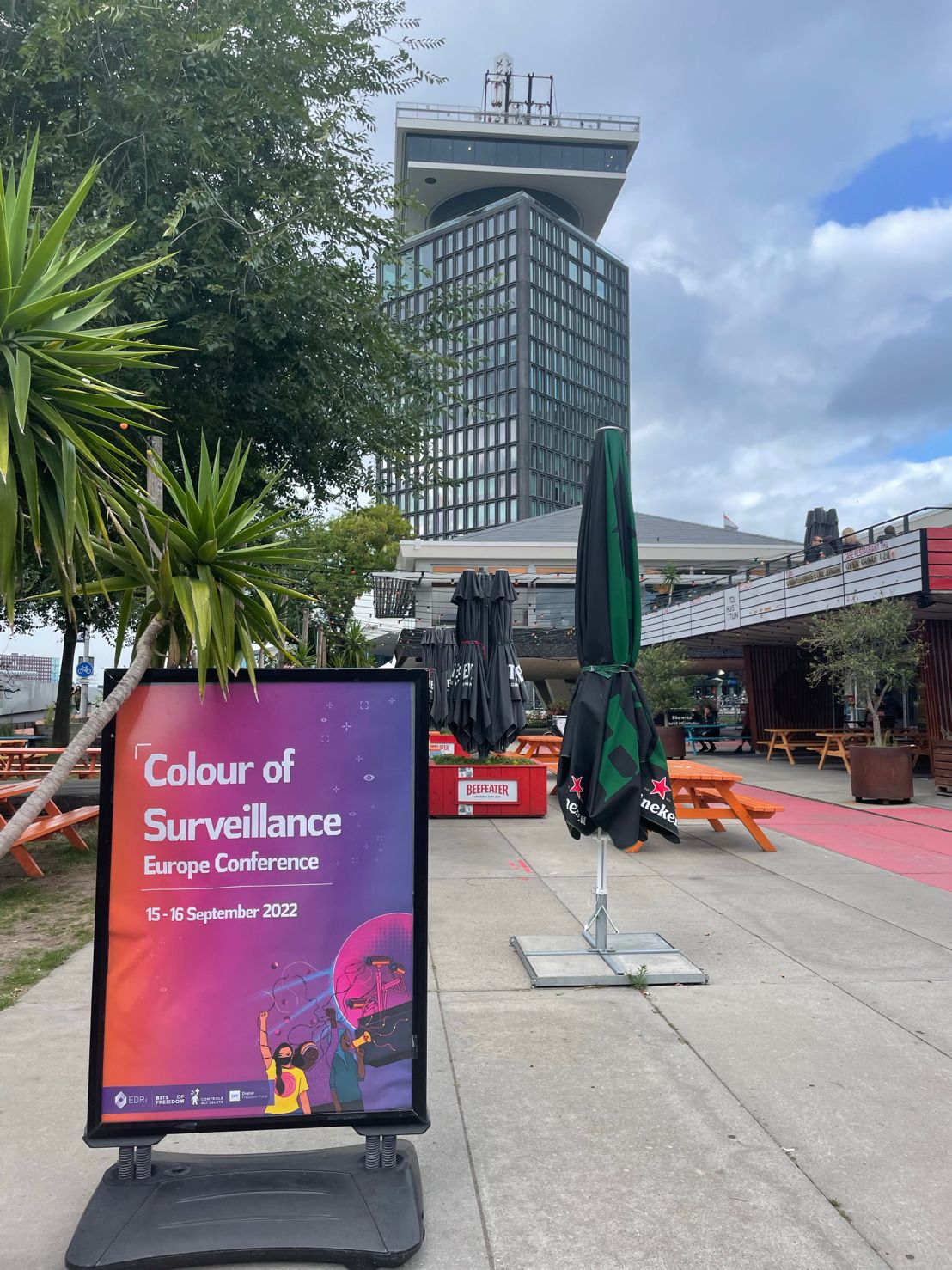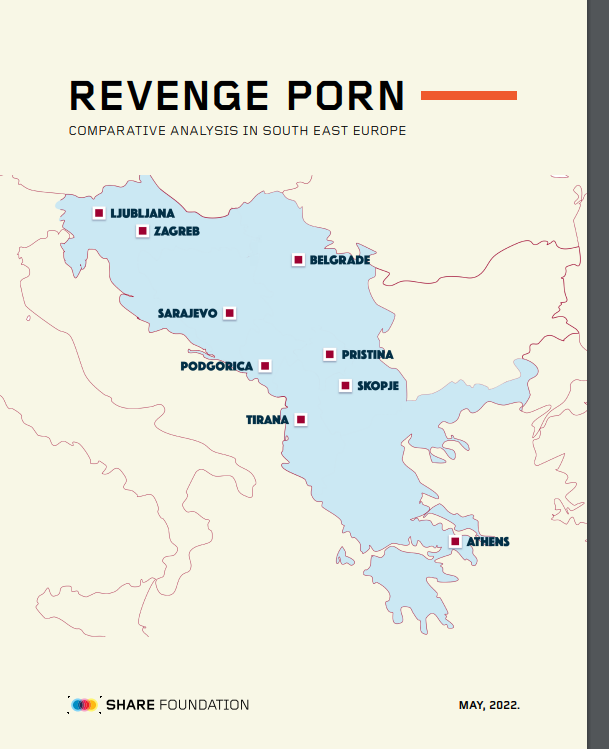Homo Digitalis speaks to the PEGA Committee of the European Parliament during her visit to Greece
The European Parliament’s Committee of Inquiry into the investigation into the use of spyware in the EU is in Greece this week!
Homo Digitalis has been invited to appear before it to give evidence on the significant challenges to the rule of law, democracy and human rights. We will be represented at this meeting by the Vice President of the Board, Stefanos Vitoratos.
The Commission of Inquiry will also meet representatives of journalists from InsideStory and Reporters United, who highlighted #Pretarorgate with their investigation, as well as representatives of civil society and political parties, among others.
Homo Digitalis participates in the IAPP Hellenic KnowledgeNet Chapter's event
At 18:00 (until 20:30) the Greek KnowledgeNet Chapter of the IAPP (International Association of Privacy Professionals) is organizing an event at the Athens Bar Association on “Privacy of communications: violations and discrimination of the right to privacy and personal data”. Stefanos Vitoratos will be on the panel discussing an issue that concerns us all.
Detailed information about the event can be found here:
We note that two more members of Homo Digitalis, Melina Skondra (Chaptair Chair) and Stergios Konstantinou (Young Privacy Professional) are among the Greek Chpater leaders of the IAPP (International Association of Privacy Professionals) for Greece.
Our speech at IGF Greece's online event on DSA and digital platforms
Christos Zanganas will represent us on Monday, October 17 at 19:00 in the discussion of an issue we often read about:
What is the regulatory framework that defines the technical and legal measures for a secure and transparent internet?
What is the responsibility of digital platforms and what does the new European legislation of the Digital Services Act (DSA) ensure?
You can register here.
Our speech at BEYOND EXPO in Thessaloniki is available
You can watch Melina Skondra’s recent speech at Beyond Expo on the protection of our personal data and privacy in the workplace and the obligations of employers to comply with GDPR.
Technology should be used in a way that serves people, according to Melina, and we couldn’t agree more! You can watch the relevant clip here (at 44:38).
Homo Digitalis meets members of the European Parliament in Athens
Konstantinos Kakavoulis and Alexandra Karaiskou represented Homo Digitalis in a meeting with a delegation of Members of the European Parliament visiting Greece.
Together with the MEPs and other civil society partners, we discussed issues related to the use of intrusive technologies in the fields of policing and border security, while we also developed arguments regarding the provisions of the proposed AI Act and the relevant interventions needed to properly regulate the challenges that arise.
Homo Digitalis at BEYOND EXPO in Thessaloniki
Melina Skondra will represent us in the panel “The future of work and the digital employees”, in the context of the Beyond Expo exhibition that will take place on Saturday 1/10 in the morning in Thessaloniki.
Tickets are available here
Homo Digitalis at the Plenary Session of the Artificial Intelligence Committee of the Council of Europe
The Secretary of the Board of Directors, Eleftherios Chelioudakis, represented Homo Digitalis at the Plenary Session of the Artificial Intelligence Committee of the Council of Europe, CAI.
Specifically, on 21-23/9 we were in Strasbourg to participate in the negotiations for the adoption of a treaty on AI, Human Rights, Democracy and the Rule of Law! Homo Digitalis has been participating in relevant meetings of this committee since the first day of its establishment, and of course was also present in meetings of the previous Council of Europe committee on related issues, CAHAI, already in the summer of 2020.
You can find out more about the Council of Europe’s AI Committee here.
Homo Digitalis at the Colour Of Surveillance conference and the JET Table
The Secretary of the Board, Eleftherios Chelioudakis, represented Homo in two very important meetings in Amsterdam, the Netherlands. Specifically, on 15-17/9 we were present at the Colour Of Surveillance conference organized by the organizations European Digital Rights, Digital Freedom Fund, Bits of Freedom & Controle Alt Delete, as well as at the expert meeting organized by the Justice, Equity & Technology (JET) Table of The London School of Economics and Political Science (LSE) to discuss issues related to surveillance and policing of vulnerable social groups!
You can find out more about the Colour Of Surveillance conference here.
You can read more about The London School of Economics and Political Science (LSE) Justice, Equity & Technology (JET) Table and Homo Digitalis’ involvement in it from early 2021 here.
Homo Digitalis participates in important research on sexual abuse through images
Our member Anastasios Arampatzis participated in a Share Foundation survey on the legal framework in Greece regarding sexual abuse through images.
The Greek legal order, like many neighbouring countries, does not include a comprehensive and clear provision practically protecting survivors of image-based sexual abuse (#imagebasedsexualabuse).
The lack of a directly regulated framework defining and prosecuting the crime as a stand-alone crime as well as #advocacy methods are explored in the comparative study in South Eastern Europe recently published by the SHARE Foundation. The latest development in the Greek reality (Article 346 CC), despite its positive aspect, again includes the crime in a series of offences such as forgery, intensifying the need for an autonomous regulation.
You can read the relevant report and find out about the two countries that recognise sexual abuse through images as a separate criminal offence here.

